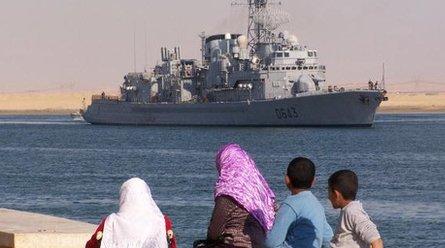
Leaders from countries in West Africa have appealed to the international community to assemble a naval task-force to combat the rising risk of piracy in the Gulf of Guinea.
At a recent meeting of West African leaders, the president of the Ivory Coast, Alassane Ouattara said that pirates needed to be handled with firmness.
While international efforts have curbed piracy off the east coast of Africa, piracy in West Africa has now overtaken the world’s recent hotspot for hijackings.
According to the International Maritime Bureau, 960 seamen were victims of attacks in West Africa in 2012, while only 851 were victims on the other side of the continent, marking the first year that West African piracy out-paced East African piracy.

Nigeria, the biggest oil producer in Africa, is where most of the attacks occur. On land, the Niger River Delta has been a battleground between militant criminal organizations for many years, and the oil theft is now spilling out to sea.
Because West African pirates are more interested in stealing cargo than taking hostages — the opposite of their Somali brethren — they more often resort to instant and extreme violence to subdue the crew of a ship. Although Somali pirates are surely brutal, the well-being of crew members is usually a matter of financial incentive, which preserves the health and safety of victims at least a degree.
The massive drop in piracy off the coast of Somalia has been attributed to the presence of an international naval fleet, and merchant vessels beginning to follow industry best practices to avoid hijacking. These best practices involve outfitting ships with defensive equipment, learning evasive maneuvering, and hiring armed guards to have on-board.
Unfortunately, these measures have yet to take hold in West Africa. Because piracy here takes place within the territorial waters of coast nations as opposed to international waters, it makes an international naval presence much more complicated. Additionally, countries such as Nigeria have made it rather difficult for private security firms to obtain contracts to operate on ships that call on Nigerian ports.
Although some countries in the region recognize the threat to their own economies, not everyone is willing to allow international intervention. Countries like the Ivory Coast, Benin, Togo and Cameroon will need to convince regional powers such as Nigeria to allow such action to be taken before the problem begins to get better.